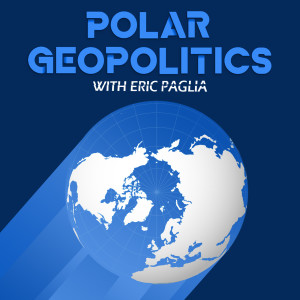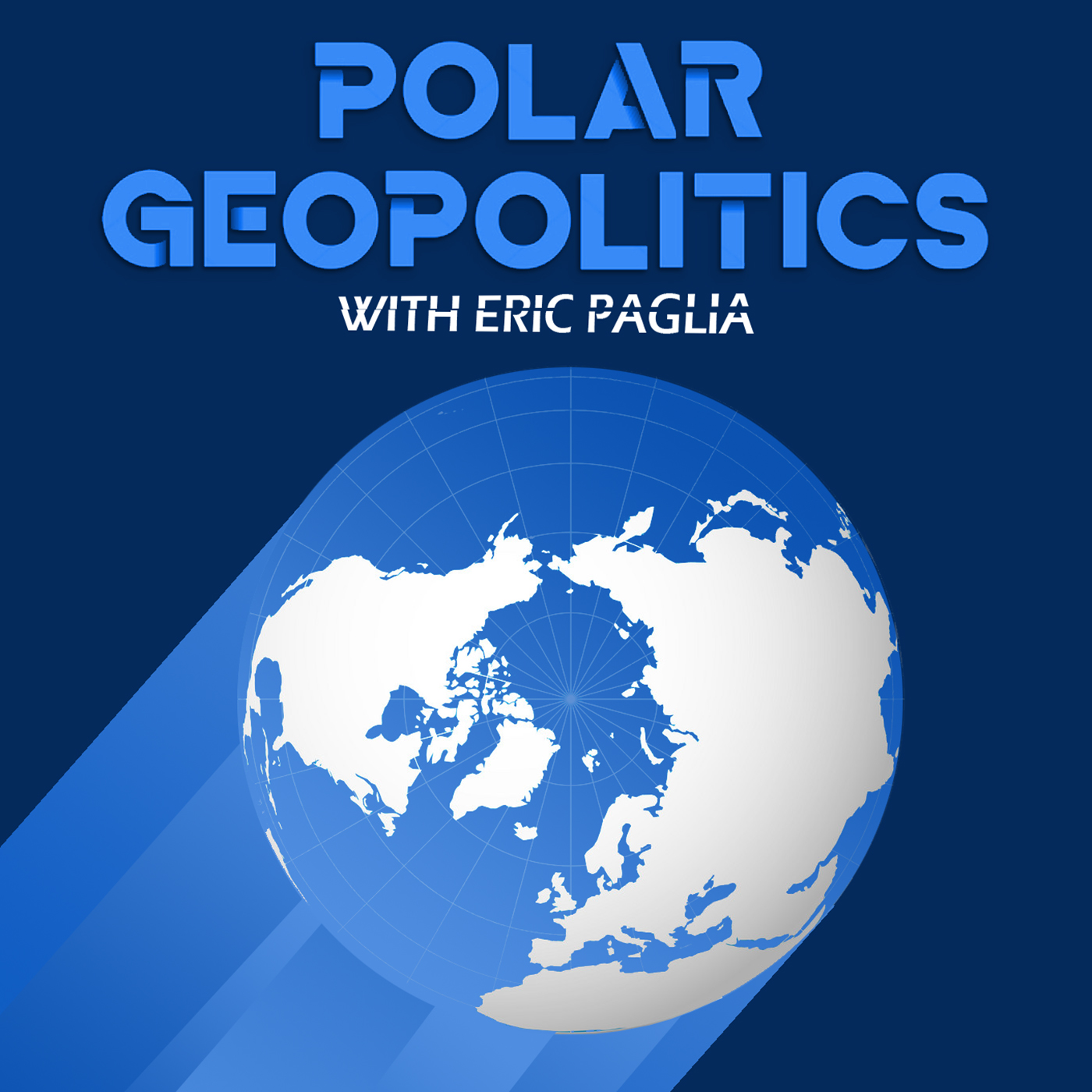Episodes

Monday Sep 26, 2022
Monday Sep 26, 2022
In this moment of crisis, Prof. Oran Young shares insights accumulated across four decades, a time during which he laid the foundation for analyzing Arctic politics, and actively promoted governance initiatives in the circumpolar North. He also reflects on the legacy of Mikael Gorbachev, who was instrumental in establishing the idea of the Arctic as a “Zone of Peace”. This episode of the Polar Geopolitics podcast commemorates the 30th anniversary of Prof. Young’s seminal 1992 work, Arctic Politics: Conflict and Cooperation in the Circumpolar North, which largely launched the social scientific study of the Arctic region.

Wednesday May 04, 2022
Wednesday May 04, 2022
Facing the most serious crisis since its founding in 1996, the future of the Arctic Council—currently on pause due to Russia’s invasion of Ukraine—has become fraught with uncertainty. What role, if any, can Russia possibly play in polar governance institutions if and when the conflict it started eventually subsides? Evan T. Bloom, a Senior Fellow at the Wilson Center’s Polar Institute who was instrumental in the Council’s establishment and evolution during his long career as the top polar official at the U.S. State Department, joins the podcast to discuss Arctic and Antarctic governance in the aftermath of the war in Ukraine. Support the production of the Polar Geopolitics podcast through our PayPal or Patreon pages.

Saturday Apr 09, 2022
Arctic, Baltic and Beyond: Geopolitics, security and the spectre of a new Cold War
Saturday Apr 09, 2022
Saturday Apr 09, 2022
Arctic and Russia expert Caroline Kennedy-Pipe, Professor of War Studies at Loughborough University, joins the podcast for a wide-ranging discussion on the implications of Russia’s invasion of Ukraine on Arctic and Baltic security, Eurasian geopolitics and the liberal international order, as well as the threat of nuclear escalation and the possibility that great power competition between the United States, Russia and China could result in a new Cold War. Prof. Kennedy-Pipe also shares insights on the new UK Arctic military strategy and the lessons and legacies of the Falklands War forty years ago. Support for the Polar Geopolitics podcast can be provided via PayPal https://www.paypal.com/donate/?hosted_button_id=KXUVZKGALMFXU or Patreon https://www.patreon.com/polargeopolitics

Thursday Mar 17, 2022
Thursday Mar 17, 2022
Klaus Dodds, professor of geopolitics at Royal Holloway University of London and author of the recent book Border Wars: The Conflicts that will Define our Future, joins the podcast to discuss the impact of the Russian invasion of Ukraine on the Arctic Council and Antarctic Treaty System, on Baltic security and UNCLOS processes, and the ways in which the war has deeply disrupted the liberal international order, and potentially ushered in a new era of de-globalization.

Friday Feb 25, 2022
Friday Feb 25, 2022
The tensions in Arctic relations that began after the 2014 Crimea crisis will in all likelihood be greatly exacerbated by the Russian invasion of Ukraine. Could the new security situation in Europe, together with the increased military activity in the High North in recent years, lead to an Arctic arms race? Russia and Arctic expert Mathieu Boulègue, a research fellow at the Russia and Eurasia programme at Chatham House, joins the podcast to provide a real time analysis of the war in Ukraine, the new geopolitical reality in Europe, and the potential implications for Arctic security.

Wednesday Feb 16, 2022
Wednesday Feb 16, 2022
Camp Century, a 1960s US Army base embedded in the Greenland ice sheet, was not only a High Arctic test site for advanced technologies—including a modular nuclear reactor—and secret military schemes at the height of the Cold War, but also a seminal location for the extraction of ice cores that would become an important baseline for modern climate science. Associate professor Kristian H. Nielsen of Aarhus University, who-coauthored a definitive account of this fascinating chapter of Cold War history, “Camp Century: The Untold Story of America's Secret Arctic Military Base Under the Greenland Ice” (Columbia University Press, 2021), joins the podcast to discuss this audacious geostrategic initiative and its enduring afterlife that has continued to complicate Denmark-US-Greenland relations for over 60 years.

Monday Dec 20, 2021
EU Arctic Policy and Geopolitics with Amb. Michael Mann
Monday Dec 20, 2021
Monday Dec 20, 2021
The European Union updated its Arctic policy in October with a communication that took a strong stand on climate change—calling for hydrocarbons to be left in the ground—and pronounced its status as an Arctic geopolitical actor that would assert its interests across the circumpolar North. Ambassador Michael Mann, the EU Special Envoy for Arctic Matters, joins the Polar Geopolitics podcast for an in-depth discussion on the multiple dimensions of the European Union’s engagement in the Arctic, from interactions with Russia, China and the United States, to plans for opening an EU office in Greenland, and its ongoing quest to become an Arctic Council observer.

Tuesday Dec 07, 2021
Brazil and the Antarctic Geopolitics of South America
Tuesday Dec 07, 2021
Tuesday Dec 07, 2021
Despite asserting itself as a regional and global power, Brazil has traditionally taken a back seat to Chile and Argentina in terms of the Antarctic geopolitics of South America. Why has this been the case, and will Brazil continue its somewhat limited engagement relative to the extensive Antarctic programs of its neighbors? Ignacio Javier Cardone, author of the new book "The Antarctic Politics of Brazil: Where the Tropic meets the Pole" joins the Polar Geopolitics podcast to explain the evolution and future prospects of Brazilian activity in Antarctica, as well as the wider Antarctic geopolitics of Argentina, Chile and other countries of South America.

